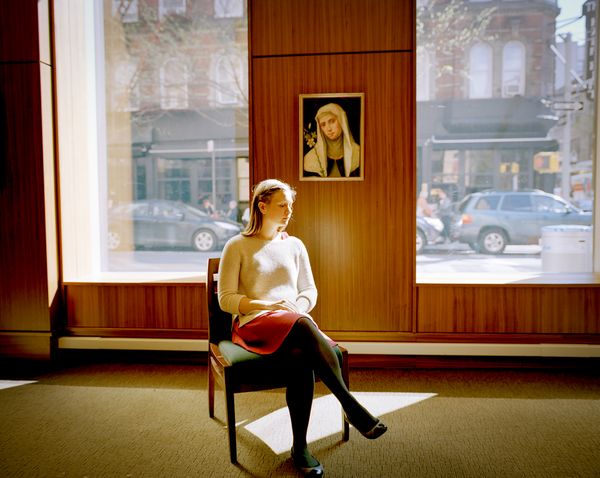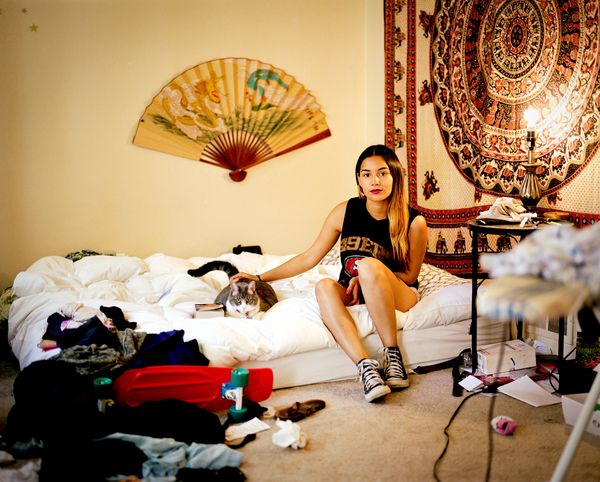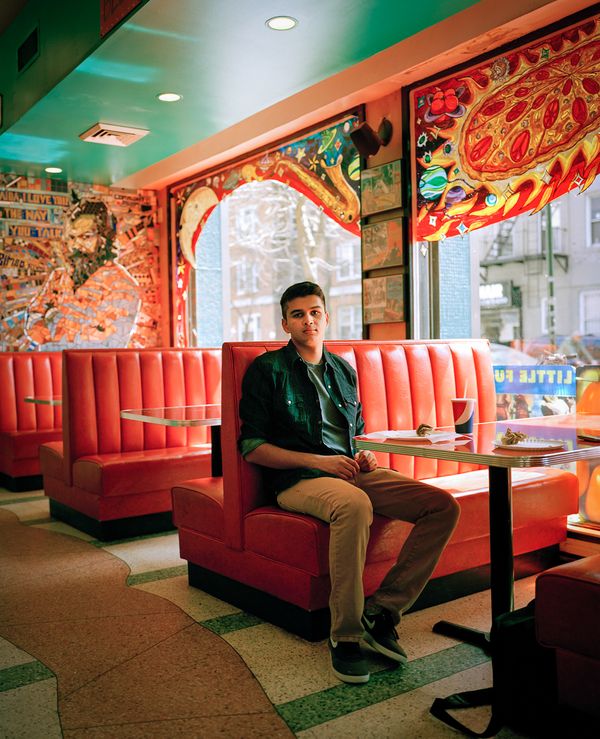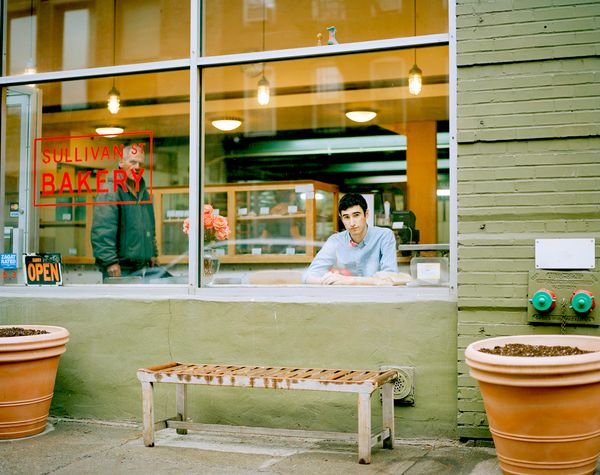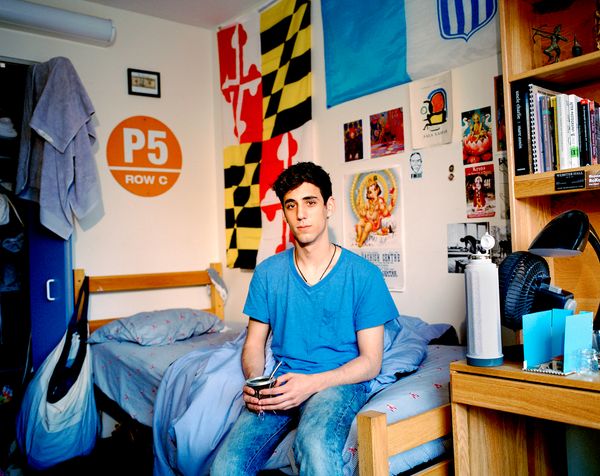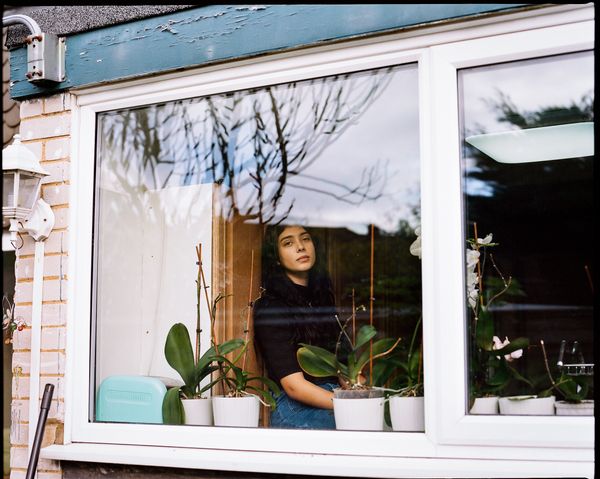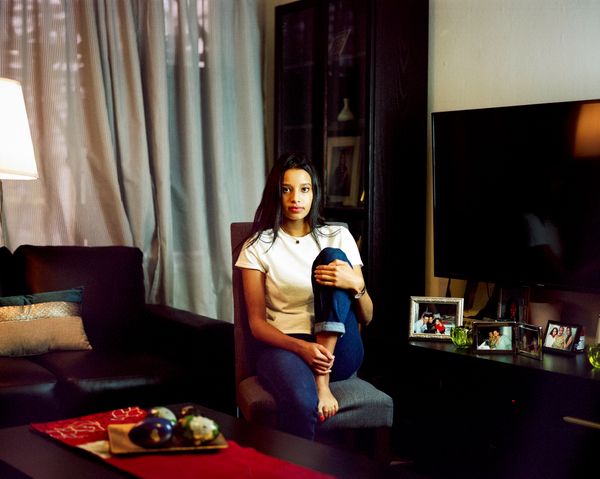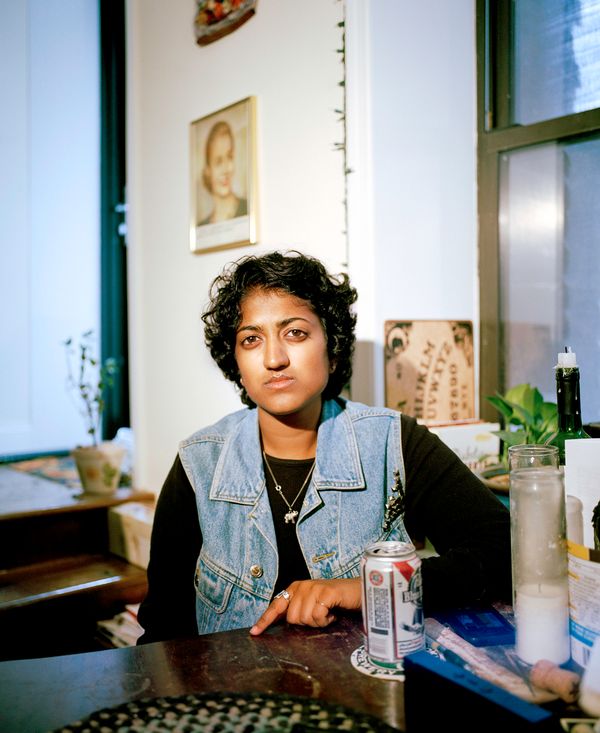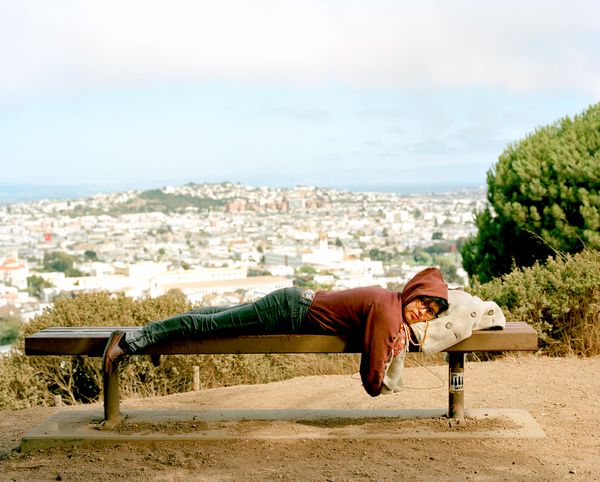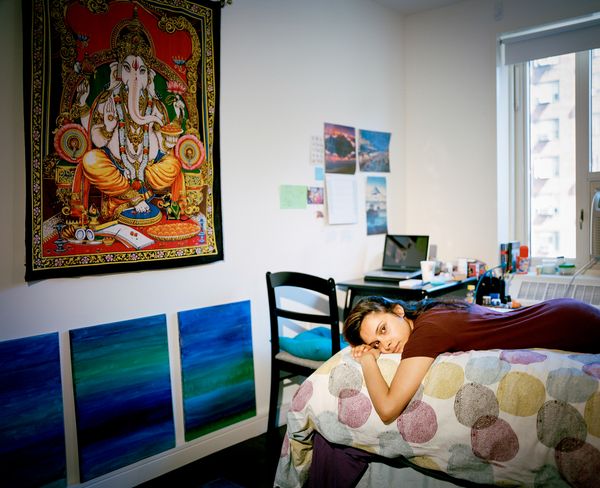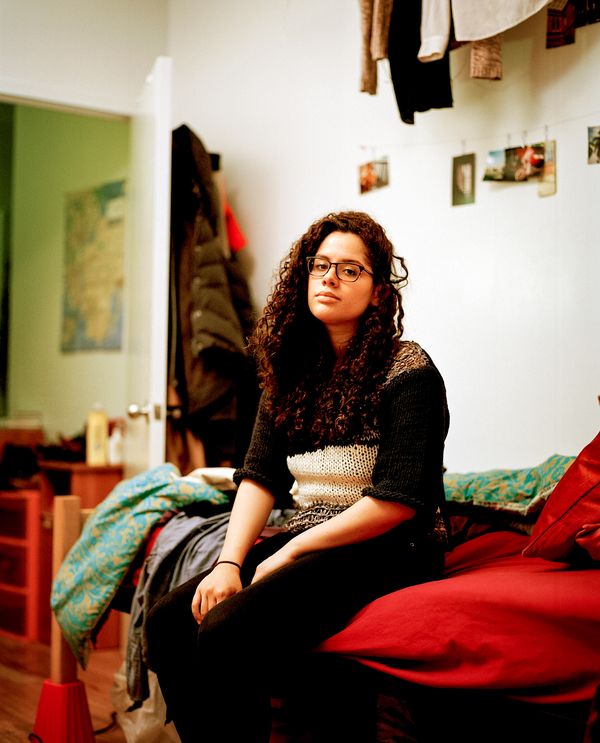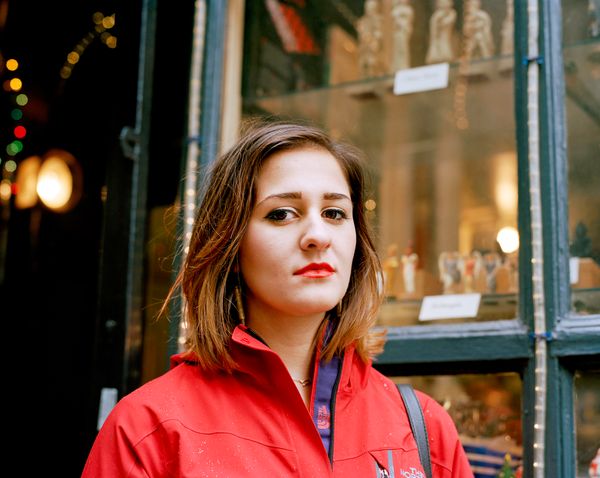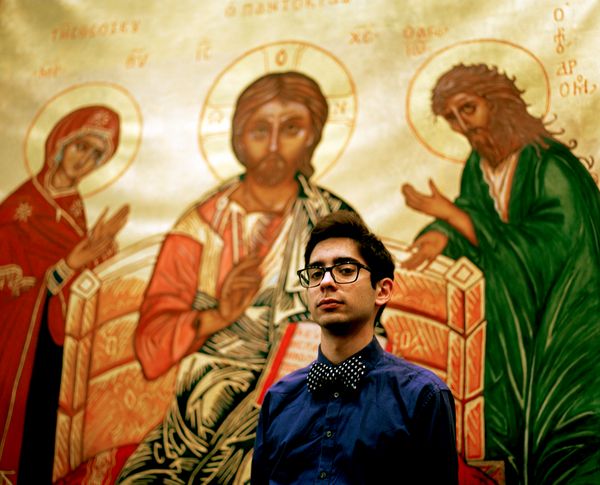We Are More Than Numbers
-
Dates2012 - Ongoing
-
Author
- Locations United States, United Kingdom
There are around 20 million adult, American-born children of immigrants living in the United States. I am one of them. I am the daughter of two immigrant mothers from Peru and Argentina. My roots are not directly below me, beneath this ground that I stand on, but instead reach to many parts of the world. I grew up in San Francisco, moving constantly from house to house, sometimes in homes filled with other families. I quickly learned to adapt. I became a traveler, just as my mothers are, and just as many immigrants are travelers whose wandering feet and thoughts are never still.
Technically, I am an American, but that label doesn’t quite seem to fit. For much of my childhood I felt tension between the culture I was immersed in at school and the culture that my mothers kept alive within our home, the one I returned to each night. I ate milanesas and lomo saltado, while my friends at school had peanut butter and jelly sandwiches and spoke about their excitement for a holiday I never celebrated, Thanksgiving. I spoke Spanish until I felt too different from others. When I began primarily speaking English, people were shocked whenever they heard a pale girl say, “yo soy latina.” That’s when I started to feel neither South American nor North American. I was stuck in an uncomfortable in-between, a place from which I am still trying to free myself.
In discussions about children of immigrants, scholars often deal with statistics, but rarely with the actual individuals who have their own voices and ideas of identification. We are more than numbers, more than the reports that analyze our educational attainment and economic standing.
This continuing portrait series is inspired by conversations I’ve had with children of immigrants since 2012 between the United States and United Kingdom. The people I met talked about their childhoods and how they defined American and British culture. They reflected on self-identification and the imbalance of cultural identity. And they looked at how the label "children of immigrants" affects the members of that community.
“A lot of the time, being a child of immigrants means constantly having to defend your place as an ‘American,’” said Alex Santana, a Spanish- and Dominican-American. By deconstructing our cultural identities, our childhoods, and the ways in which some people misrepresent us, we are reclaiming our individuality.
